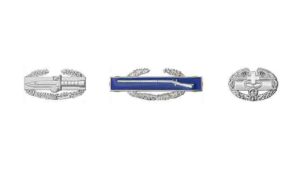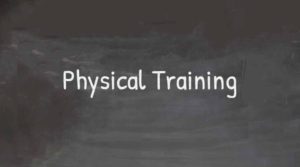The Noncommissioned Officer’s Creed
The Creed of the Noncommissioned Officer is a device used in the United States Army to encourage the professionalism of enlisted leaders, as well as leaders of all ranks, by reminding them of their responsibilities and authority. It is often referred to as the Noncommissioned Officer’s Creed or simply the “NCO Creed”. Every noncommissioned officer (or candidate) must learn and internalize it.

Essentially, the NCO Creed serves as a type of code of conduct. A code of conduct being a set of rules outlining the “norms”, rules, and responsibilities or proper practices of an individual party or an organization. The norms are collective representations of acceptable group conduct as well as individual perceptions of noncommissioned officers as a collective group. It’s about values. The term creed refers to a statement of the shared beliefs of the NCO community in the form of a fixed formula that serves to summarize core leadership and behavioral tenets.
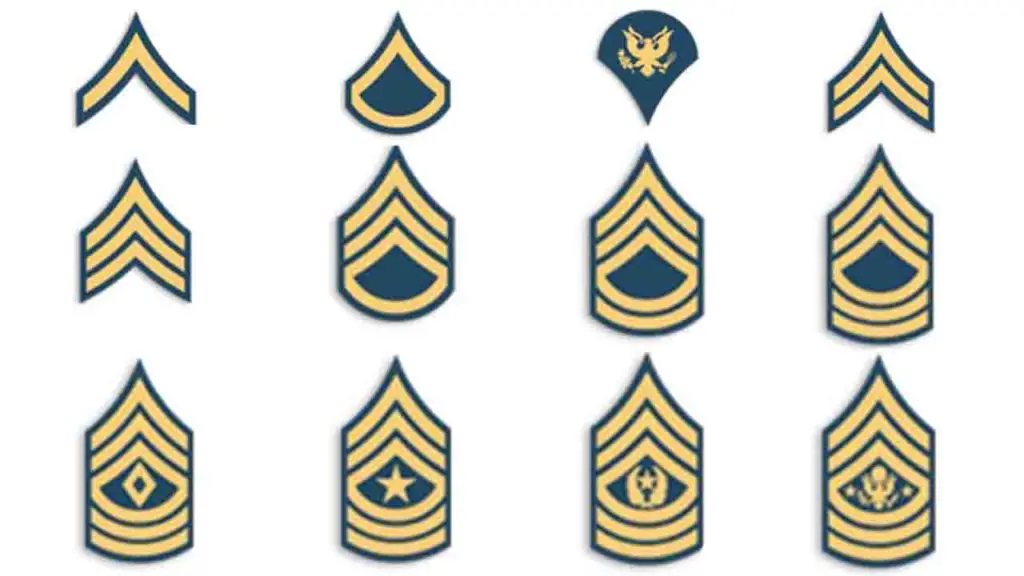
Background of the NCO Creed
After the Vietnam War, the United States Army was in a disorganized state. The NCO Corps had been weakened by at least two factors; mass exodus of professional and qualified noncommissioned officers along with extreme job specialization which resulted in an even greater shortage or well-round NCOs among all of the branches of the Army, especially the Infantry. It was determined, rightfully so, that the Noncommissioned Officer Corps was in need of an “overhaul”.
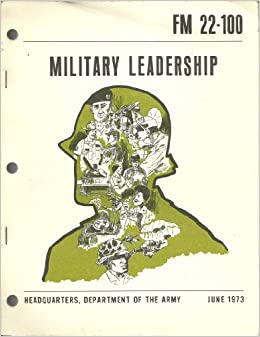
Part of the overhaul of the NCO Corps involved rewriting the Army Field Manual that covered the area of military leadership, FM 22-100. The purpose of FM 22-100 is made clear in the first paragraph of its preface:
A Trained and Ready Army has as its foundation, competent and confident leaders. We develop such leaders through a dynamic process consisting of three equally important pillars: institutional training, operational assignments, and self-development. This approach is designed to provide the education, training, and experience that enable leaders to develop the necessary skills, knowledge, and attitudes.
FM 22-100 brings together the foundational professional military values that every Army leader is expected to internalize as they begin their leadership journey.
The preface continues:
FM 22-100, Military Leadership, is the Army’s basic manual on leadership. It has two purposes: to provide an overview of Army leadership doctrine, including the principles for applying leadership
theory at all organizational levels to meet operational requirements; and to prescribe the leadership necessary to be effective in peace and in war.
While this manual applies to all Army leaders, its principal focus is on company grade officers, warrant officers, and noncommissioned officers, the junior leaders of soldiers at battalion-squadron level and below. FM 22-100 incorporates the professional military values, the bedrock of our service, that all Army leaders must internalize in the earliest years of their careers.
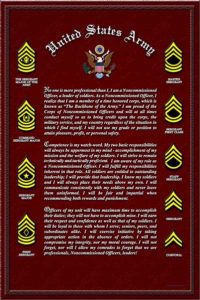 In addition to training Soldiers at the Noncommissioned Officers Academy, select NCOs developed instructional material that was to be disseminated throughout the Army. These NCOs were a part of the NCO Subcommittee of the Command and Leadership Committee based at the the U.S. Army Infantry School (USAIS) at Fort Benning, GA. The genesis of the NCO Creed is credited to subcommittee members SFC Earle Brigham and SFC Jimmie Jakes Sr.. It is said that it began with them writing the three letters “N C O” on a sheet of paper. From there, the committee began building a creed. They called it a “yardstick by which to measure themselves.”
In addition to training Soldiers at the Noncommissioned Officers Academy, select NCOs developed instructional material that was to be disseminated throughout the Army. These NCOs were a part of the NCO Subcommittee of the Command and Leadership Committee based at the the U.S. Army Infantry School (USAIS) at Fort Benning, GA. The genesis of the NCO Creed is credited to subcommittee members SFC Earle Brigham and SFC Jimmie Jakes Sr.. It is said that it began with them writing the three letters “N C O” on a sheet of paper. From there, the committee began building a creed. They called it a “yardstick by which to measure themselves.”
Upon ultimate approval, The Army began printing the NCO Creed on the inside cover of the special texts that were issued to students (beginning in 1974). The Creed of the Noncommissioned Officer was submitted for higher level approval and Service wide distribution. It wasn’t until 11 years later that the NCO Creed was formalized by an official army publication.

The Words of the NCO Creed
No one is more professional than I. I am a noncommissioned officer, a leader of Soldiers. As a noncommissioned officer, I realize that I am a member of a time honored corps, which is known as “The Backbone of the Army.” I am proud of the Corps of Noncommissioned Officers, and will at all times conduct myself so as to bring credit upon the Corps, the military service, and my country; regardless of the situation in which I find myself. I will not use my grade or position to attain pleasure, profit, or personal safety.
Competence is my watchword. My two basic responsibilities will always be uppermost in my mind – accomplishment of my mission and the welfare of my Soldiers. I will strive to remain technically and tactically proficient. I am aware of my role as a noncommissioned officer, I will fulfill my responsibilities inherent in that role. All Soldiers are entitled to outstanding leadership; I will provide that leadership. I know my Soldiers, and I will always place their needs above my own. I will communicate consistently with my Soldiers, and never leave them uninformed. I will be fair and impartial when recommending both rewards and punishment.
Officers of my unit will have maximum time to accomplish their duties; they will not have to accomplish mine. I will earn their respect and confidence as well as that of my Soldiers. I will be loyal to those with whom I serve; seniors, peers, and subordinates alike. I will exercise initiative by taking appropriate action in the absence of orders. I will not compromise my integrity, nor my moral courage. I will not forget, nor will I allow my comrades to forget that we are professionals, noncommissioned officers, leaders!
Notice that the first letters of each paragraph together spell out the acronym “NCO”.
A Closer Look at the NCO Creed
If you examine the NCO Creed, you will notice that is actually a restructured version of the expectations laid out in FM 22-100 for military leadership as a whole. Take a look at the remaining language stated in the manuals preface:
Army leaders must learn to fulfill expectations of all soldiers including other leaders. FM 22-100 addresses fundamental expectations:
Demonstrate tactical and technical competence. Know your business.
Soldiers expect their leaders to be tactically and technically competent. Soldiers want to follow those leaders who are confident of their own abilities. To be confident a leader must first be competent. Trust between soldiers and their leaders is based on the secure knowledge that the leader is competent.
Teach subordinates.
In training, leaders must move beyond managing programs or directing the execution of operations. Our leaders must take the time to share with subordinates the benefit of experience and expertise.
Be a good listener.
We must listen with equal attention to our superiors and our subordinates. As leaders we can help solve any problem for a soldier or a unit. However, we can only do so if we know about it. We won’t know about it if we don’t listen.
Treat soldiers with dignity and respect.
Leaders must show genuine concern and compassion for the soldiers they lead. It is essential that leaders remain sensitive to family members and include them in unit activities to the extent possible. Remember, respect is a two-way street; a leader will be accorded the same level of respect that he or she shows for others.
Stress basics.
Leaders must demonstrate mastery of fundamental soldiering skills such as marksmanship, first aid, and navigation, as well as the requisite skills for their particular specialty, and be able to teach them to their soldiers.
Set the example.
Leaders abide consistently with the highest values of the military profession and its institutions. They encourage within their soldiers a commitment to the same values. Leaders take pride in selflessly dedicating their service to ensure mission accomplishment. They are aware that they are always on parade—24 hours a day, seven days a week—and that all their actions set personal and professional examples for subordinates to emulate.
Set and enforce standards.
A leader must know, and always enforce, established Army standards. Perhaps the most fundamental standard which must be maintained is discipline. Our soldiers must promptly and effectively perform their duty in response to orders, or in the absence of orders take the correct action.
The fundamental mission of our Army is to deter war and win in combat. The American people expect that officers and noncommissioned officers at all levels will lead, train, motivate, and inspire their soldiers. Our soldiers and units perform difficult tasks, often under dangerous, stressful circumstances. To achieve excellence in these tasks, leaders must explain the importance of the mission, articulate priorities, and focus soldier and unit efforts to perform in an efficient and disciplined manner. Well led, properly trained, motivated, and inspired soldiers will accomplish any mission.
Leaders in our Army have a challenge. They must take care of soldiers’ needs; develop them into cohesive teams; train them under tough, realistic conditions to demanding standards; assess their performance; assist them with their personal and professional growth; and reward them for their successes. To meet that challenge our leaders must be competent, and confident in their ability to lead. Such leaders will remain essential to our Trained and Ready Army, today and tomorrow.
The NCO Creed is all about Leadership
Leadership is both a research area and a practical skill that includes the ability of an individual or organization to “lead” or guide other individuals, teams, or entire organizations. At its core, the NCO Creed was created to emphasize leadership. United States academic environments define leadership as “a process of social influence in which a person can enlist the aid and support of others in the accomplishment of a common task”.
In the past, leadership studies have produced theories involving traits, situational interaction, function, behavior, power, vision and values, charisma, and intelligence, among others. All of these are touched upon at some point within the NCO Creed.
Remembering the NCO Creed (Memorization)
The following video is a tool for memorizing the NCO Creed. In the first video, the NCO Creed is read allowed by a simulated voice. In a second video, the NCO Creed is repeated over and over in several different voices and is useful for extended study. You can let it play in the background while you carry on with whatever activity you happen to be engaged in.
The videos above created to assist in memorizing the NCO Creed are built on principles and techniques that have been used to assist in memorization, in general, and include:
- Rote learning – Rote learning is a learning technique that focuses on memorization by means of repetition. The words of the NCO Creed are repeatedly spoken aloud to help you memorize them.
- Spaced repetition – Space repetition is a principle of committing information into long-term memory by means of increasing time intervals between when you review previously learned material. It exploits the psychological spacing effect. While you are learning the NCO Creed, press pause and check on your learning.
- Active recall – Active recall is a learning method that exploits the testing effect. Memorization is more efficient when we actively retrieve information through testing with proper feedback. Add some flashcards to take the practical application of active recall to the next level.

Learning the NCO Creed can seem like a daunting task, at first. But, when you take a good look at it, you’ll see that the NCO Creed has a special type of flow to it. It not only makes sense, but it is also broken down in such a way that makes it easier to remember. As mentioned earlier, the first letter of each paragraph of the NCO Creed is part of the acronym “NCO”. I started learning the NCO Creed by learning those first key sentences of each paragraph. Once you capture that emotion, the rest of the NCO Creed becomes easier!
No one is more professional than I. I am a noncommissioned officer, a leader of Soldiers. As a noncommissioned officer, I realize that I am a member of a time honored corps, which is known as “The Backbone of the Army.” I am proud of the Corps of Noncommissioned Officers, and will at all times conduct myself so as to bring credit upon the Corps, the military service, and my country; regardless of the situation in which I find myself. I will not use my grade or position to attain pleasure, profit, or personal safety.
Competence is my watchword. My two basic responsibilities will always be uppermost in my mind – accomplishment of my mission and the welfare of my Soldiers. I will strive to remain technically and tactically proficient. I am aware of my role as a noncommissioned officer, I will fulfill my responsibilities inherent in that role. All Soldiers are entitled to outstanding leadership; I will provide that leadership. I know my Soldiers, and I will always place their needs above my own. I will communicate consistently with my Soldiers, and never leave them uninformed. I will be fair and impartial when recommending both rewards and punishment.
Officers of my unit will have maximum time to accomplish their duties; they will not have to accomplish mine. I will earn their respect and confidence as well as that of my Soldiers. I will be loyal to those with whom I serve; seniors, peers, and subordinates alike. I will exercise initiative by taking appropriate action in the absence of orders. I will not compromise my integrity, nor my moral courage. I will not forget, nor will I allow my comrades to forget that we are professionals, noncommissioned officers, leaders!
